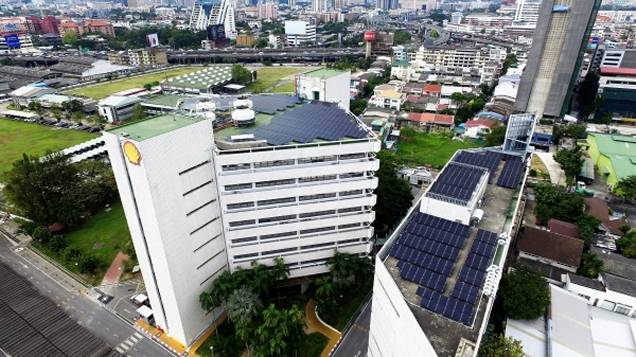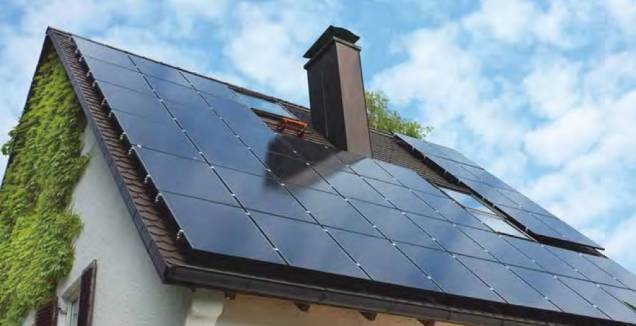
Solar power systems – Shell, Thailand
CIS solar panel manufacturer Solar Frontier has announced the completion of a PV system installation project atop two buildings at Shell’s headquarters in Thailand.
119.68 kW of CIS thin-film modules have been installed, which are expected to generate 179,479 kWh of clean electricity a year – all of which will be used by the building.
“This initiative follows from a similar programme last year where we had solar panels installed on the roofs of two of our Shell retail stations in Thailand,” said Shell Companies’ Mr. Asada Harinsuit.
“We see our efforts here as helping to contribute to Thailand’s renewable energy goals as well as to reducing Shell’s CO2 levels across our organisation.”
Thailand has a target of 25% renewable energy generation by 2021; so while this isn’t huge contribution by any real measure, it’s always good to see purveyors of fossil fuels getting their solar on and raising awareness of PV.
The two companies also have more than just a passing acquaintance.
Headquartered in Tokyo, Japan, Solar Frontier is owned by Showa Shell Sekiyu Kabushiki Kaisha, the base of Royal Dutch Shell group in Japan.
Solar Frontier panels are based on CIS technology; utilising copper, indium and selenium. The company also throws in gallium in the semiconductor layer for good measure – so, CIGS. This combination, it states, provides better results in hot temperatures, an enhanced “light soaking” effect and improved shadow tolerance and performance in low-light conditions.
The company says the thin film modules require less energy and materials to produce than conventional crystalline silicon panels.
Solar Frontier has several production facilities in Japan – Miyazaki (60 MW), Kunitomi (900 MW) and Tohoku (150 MW). The Kunitomi plant cranks out 15,000 solar modules a day.
In other relatively recent news from the company, U.S. subsidiary Solar Frontier Americas sold its 40 MW Midway II solar power plant to a subsidiary of Dominion Energy Inc. in April.
Earlier, Solar Frontier announced in March it had entered into a 150 MW module supply agreement with Cypress Creek Renewables (CCR).
In February, the company said it had achieved 19.2% efficiency on a 30cm×30cm CIS submodule and a world efficiency record of 19.8% on a 7cm×5cm-sized CIS thin-film mini-module.


 RSS - Posts
RSS - Posts



Speak Your Mind